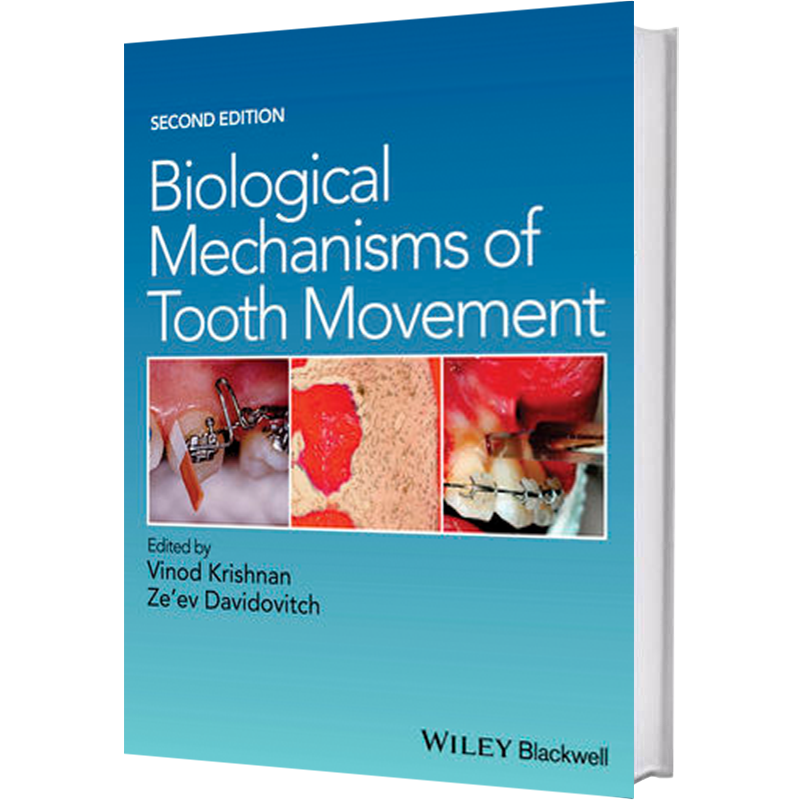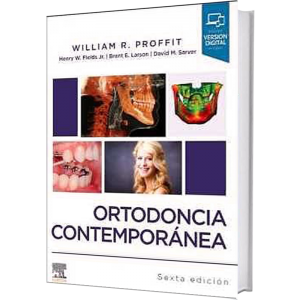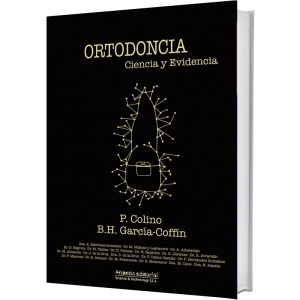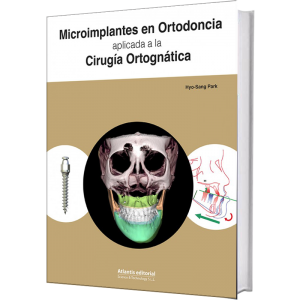Descripción
(Inglés)
Author Information:
Vinod Krishnan, Professor and Head of Orthodontics, Sri Sankara Dental College, Trivandrum, Kerala, India. Dr Krishnan’s research interests in orthodontics revolve around the biology of tooth movement, side effects of orthodontic mechanics, interactive and interdisciplinary orthodontics and the latest innovations in orthodontic materials. He maintains a specialty orthodontic practice alongside his academic post, and is, with Dr Davidovitch, the co-editor of Biological Mechanisms of Tooth Movement, 1st edition (Wiley, 2009) and Integrated Clinical Orthodontics (Wiley, 2012).
Ze’ev Davidovitch, Emeritus Professor of Orthodontics, Harvard University; and Clinical Professor of Orthodontics, Case Western Reserve University, Cleveland, Ohio, USA. Dr Davidovitch is an authority on all aspects of clinical orthodontics and the associated biological and medical connections but has particular expertise in the effects of low level electrical microcurrents and piezoelectric phenomena in bone during tooth movement. His publication list contains over 100 articles and book chapters and with Dr Krishnan he is the co-editor of Biological Mechanisms of Tooth Movement, 1st edition (Wiley, 2009) and Integrated Clinical Orthodontics (Wiley, 2012).
Description:
Biological Mechanisms of Tooth Movement, Second Edition is an authoritative reference to the scientific foundations underpinning clinical orthodontics.
Led by an expert editor team and with contributions from an international group of contributors, the book covers key topics including bone biology, the effects of mechanical loading on tissues and cells, genetics, inflammation, tissue remodeling and the effects of diet, drugs, and systemic diseases. Highly-illustrated throughout, this second edition has been fully revised, updated and expanded to new developments in genomics, rapid orthodontics and current controversies in tooth movement research.
Trainees, qualified specialists and researchers in orthodontics can rely on this comprehensive text to inform them about the clinical and scientific implications of the biological mechanisms involved in the movement of teeth.
Table of Contents:
Contributors
Preface to the first edition
Preface to the second edition
Part 1: Evolution of biological concepts
Biological basis of orthodontic tooth movement: An historical perspective
Biology of orthodontic tooth movement: The evolution of hypotheses and concepts
Cellular and molecular biology behind orthodontic tooth movement
Part 2: Mechanics meets biology
The effects of mechanical loading on hard and soft tissues and cells
Biological aspects of bone growth and metabolism in orthodontics
Mechanical load sex hormones and bone modeling
Biological reactions to temporary anchorage devices
Part 3: Inflammation and tooth-moving orthodontic forces
Oral and periodontal microbiology and orthodontic treatment: Changes effects and alterations
The role of inflammation in defining the type and pattern of tissue response in orthodontic tooth movement
Markers of paradental tissue remodeling in the gingival crevicular fluid and saliva of orthodontic patients
Part 4: Personalized diagnosis and treatment based upon genomic criteria
Genetic influences on orthodontic tooth movement
Personalized orthodontics: Limitations and possibilities in orthodontic practice
The effect of drugs and diet on orthodontic tooth movement
Part 5: Rapid orthodontics
Biologic orthodontics: Methods to accelerate or decelerate orthodontic tooth movement
Corticotomy and postmodern incarnations of surgically facilitated orthodontic therapy (SFOT)
Part 6: Long-term effects of tooth-moving forces
Mechanical and biological determinants of iatrogenic injuries in orthodontics
The biological background of relapse of orthodontic tooth movement
Part 7: Tooth-movement research
Controversies in tooth-movement research
Planning and executing tooth-movement research
Index

 Inglés
Inglés


Valoraciones
No hay valoraciones aún.